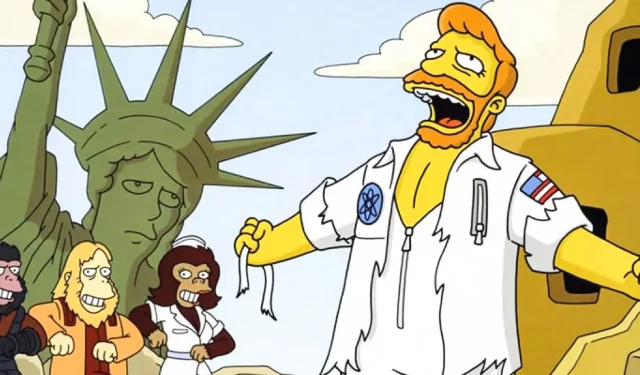
Over the years, The Simpsons has garnered a reputation for its clever movie parodies and nods to cinematic history. However, this satirical series has drawn criticism from some viewers due to its tendency to reveal significant plot twists early on. The show’s writers frequently reference a wide array of films, injecting humor into iconic scenes and characters across various genres. While many references don’t give away crucial story endings, there are notable exceptions where major plot twists are spoiled.
For reasons understood only to the show’s creators, The Simpsons has no qualms about divulging essential movie secrets. In certain instances, these revelations serve as punchlines, and spoilers like Darth Vader’s true parentage—while common knowledge—are unlikely to offend the casual viewer. Nevertheless, there are instances, such as when the show inadvertently revealed the shocking conclusion of The Crying Game just months after its release, that struck a nerve with dedicated fans.
8
Planet Of The Apes (1968)
Season 7, Episode 19, “A Fish Called Selma”
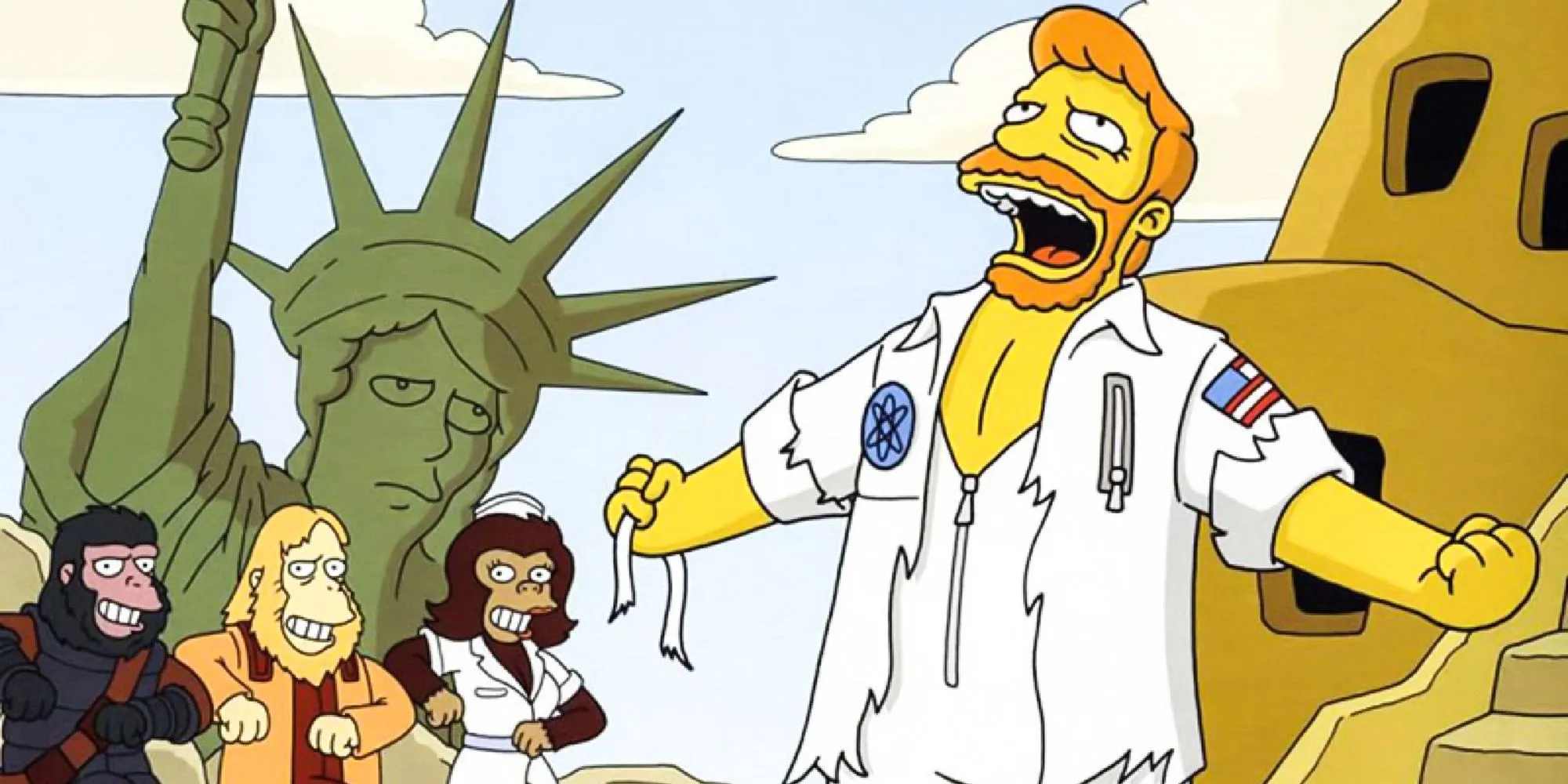
The Planet of the Apes has had its conclusion spoiled numerous times, with subsequent films serving as prequels exploring how Earth fell under ape dominion. The Simpsons isn’t the first to spoil this iconic film, but its whimsical musical adaptation certainly leaves an impression. The character Troy McClure, known for his hilarious minor roles, returns in “A Fish Called Selma,”showcasing his talent in various absurd productions, including the notably absurd Planet of the Apes musical.
Originally aired long before the trend of turning blockbusters into Broadway productions, such as Mean Girls and Back to the Future, the episode humorously capitalizes on the ridiculousness of its premise. The moment of the Statue of Liberty’s dramatic reveal on stage is nearly as absurd as Marge’s exuberant performance in the A Streetcar Named Desire musical. “A Fish Called Selma”stands out as a classic, thanks in no small part to its humorous musical segments.
7
Star Wars: Episode V – The Empire Strikes Back (1980)
Season 3, Episode 12, “I Married Marge”
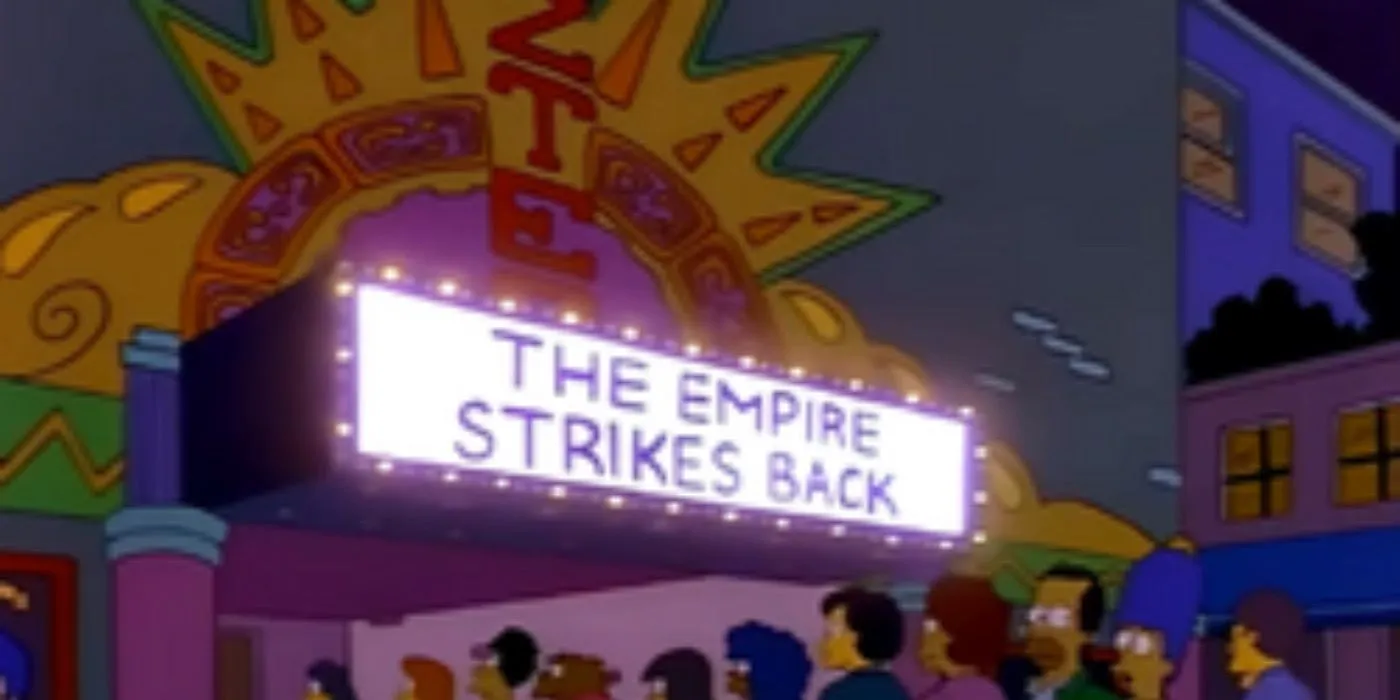
The iconic revelation from The Empire Strikes Back has crossed the cultural zeitgeist; even those unacquainted with the film often know that Darth Vader is indeed Luke Skywalker’s father. The prequel trilogy helps shed light on Anakin’s descent into villainy, while more recent movies allude to it as well. When “I Married Marge” aired, it cleverly illustrates the cultural impact of the twist at that time.
In a humorous interaction outside the theater, Homer exclaims, “Who’d have thought Darth Vader was Luke Skywalker’s father?” disturbing the patrons waiting to catch the film, drawing a sarcastic retort: “Thank you, Mr. Blow-the-picture-for-me.” This clever quip plays on Homer’s notorious lack of caution and effectively captures the essence of 1980 when the movie premiered.
6
Harry Potter & The Half-Blood Prince (2009)
Season 21, Episode 22, “The Bob Next Door”
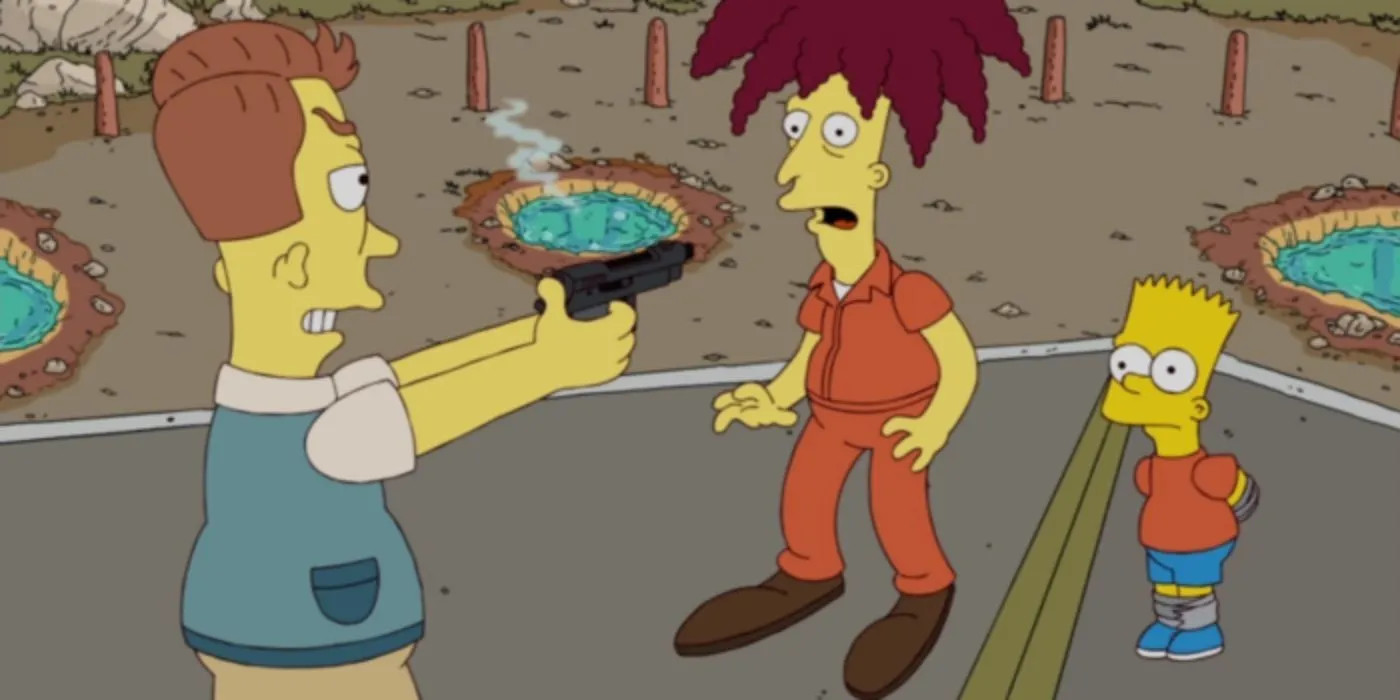
While primarily a parody of Face/Off, “The Bob Next Door”also interrupts to disclose a spoiler from Harry Potter and the Half-Blood Prince. As Sideshow Bob plots against Bart in a location where several U.S. states meet, he quips about how he will be free from criminal repercussions because it’s “the greatest murder since Snape killed Dumbledore.”
Given that the movie adaptation released just a year prior and the book had been around for four years, this moment might have been jarring for eager fans. Frustratingly, even Bart laments this spoiler amid his life-threatening ordeal, showcasing Bob’s flamboyant villainy while unintentionally annoying the audience.
5
The Sting (1973)
Season 12, Episode 7, “The Great Money Caper”
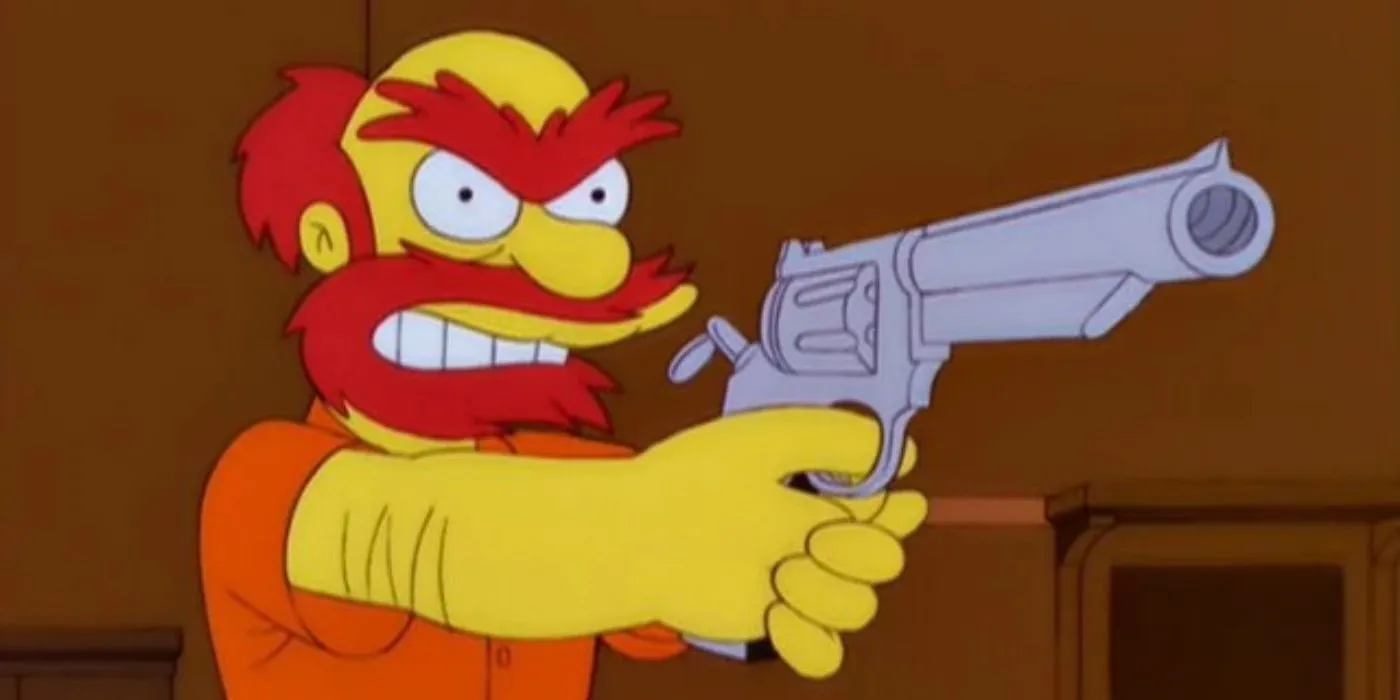
The episode “The Great Money Caper”marks a high point in Season 12 while The Simpsons was transitioning away from its Golden Age. Drawing inspiration from a number of heist films, this episode features a twist reminiscent of the classic The Sting. Both stories culminate in a reveal that the climactic violence was merely part of an elaborate con, orchestrated by an ensemble of con artists.
Though the episode doesn’t outright reference The Sting, it implies deceit when Groundskeeper Willie seemingly kills Principal Skinner, which to keen viewers may suggest the outcome is not as it seems. This indirect reference serves as a playful nod, risking minor spoilers for those who haven’t yet seen the classic film.
4
The Crying Game (1992)
Season 4, Episode 21, “Marge in Chains”
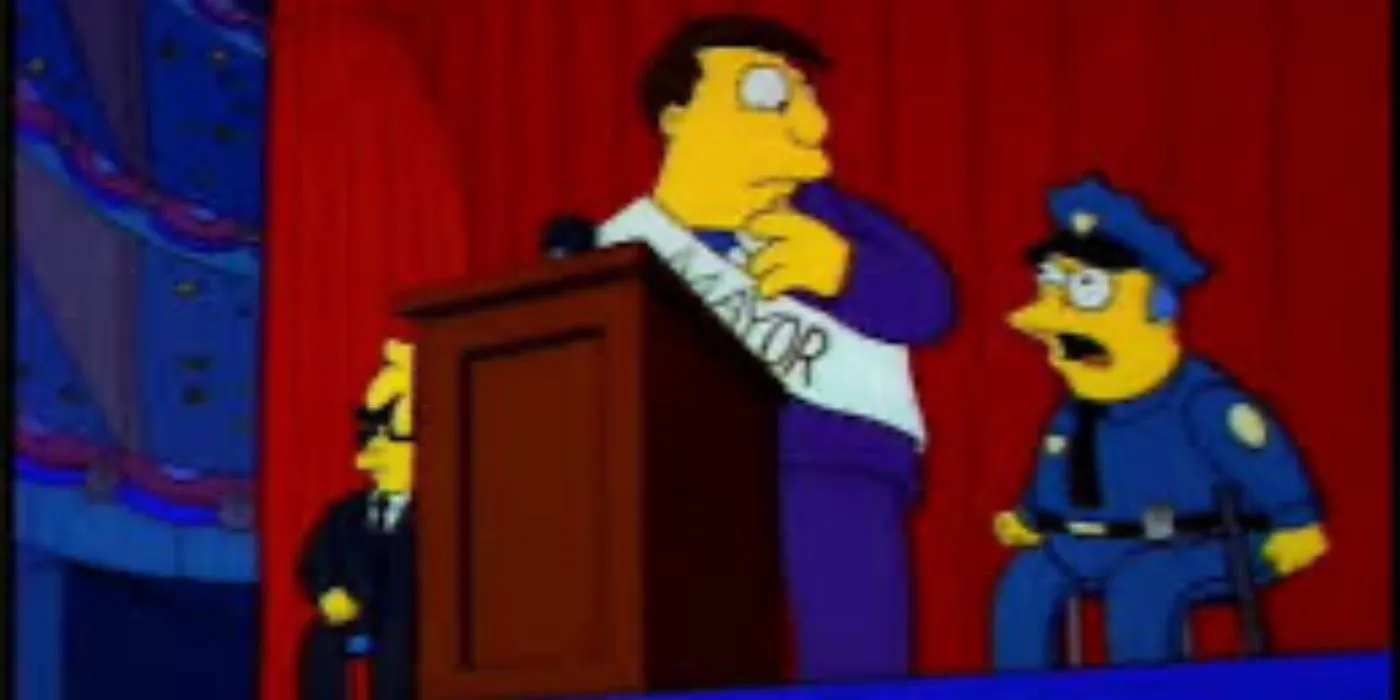
In a memorable gaffe, Mayor Quimby shockingly spoils The Crying Game in front of an audience, demonstrating an almost unbelievable political blunder. His clumsy revelation, while problematic in today’s context concerning trans representation, aired only eight months post-release, before the film had made its way to home video or television.
The Oscar-nominated film was a cultural phenomenon that achieved substantial acclaim and critical discussion. Quimby’s careless mention of the twist illustrates how different societal contexts can impact the reception of important film themes, particularly concerning gender and sexuality. In this instance, it reflects on the rushed amazement surrounding twisting narratives that lost sight of underlying themes.
3
Soylent Green (1973)
Season 11, Episode 17, “Bart to the Future”
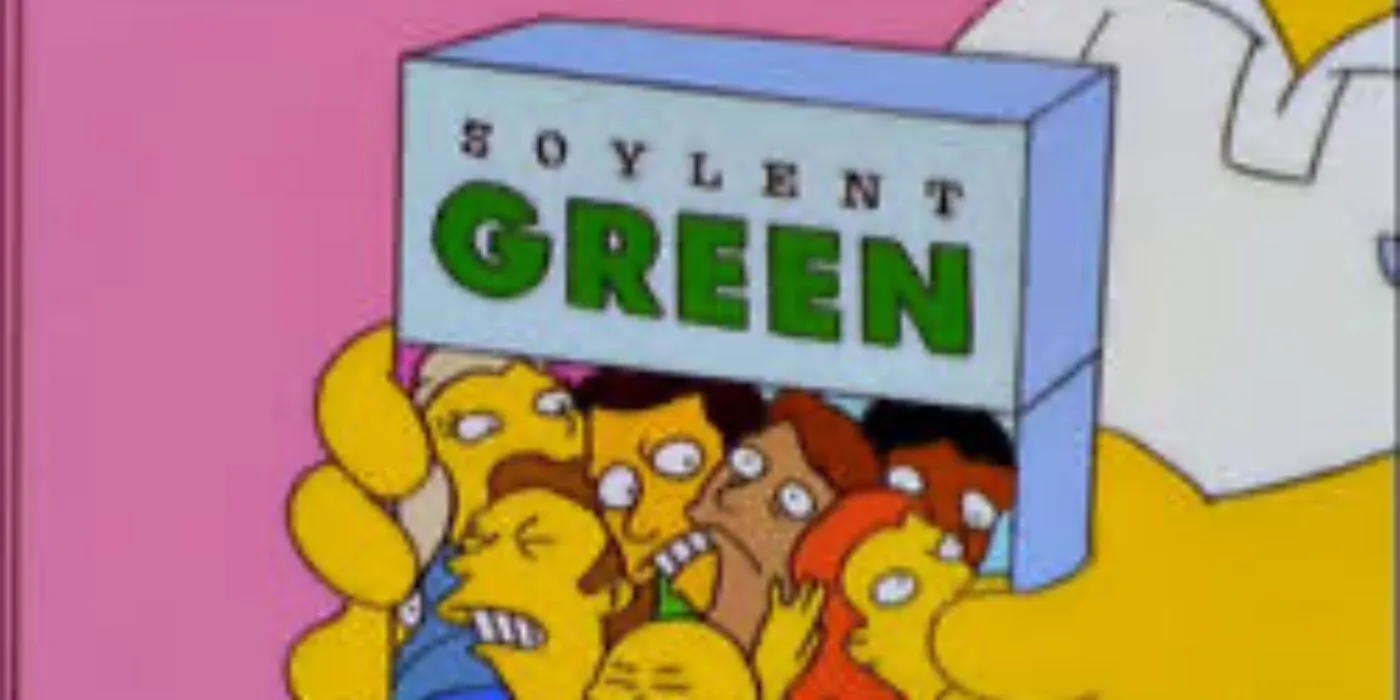
Set in a future where absurdity reigns, “Bart to the Future”encapsulates a dystopian vision complete with satirical twists, including a spoiler from Soylent Green. Within this alternate reality, Homer offers Bart and Ralph a taste of Soylent Green, leading Ralph to exclaim that it’s made from people, spoiling the film’s chilling revelation.
This plot twist has become a pop culture staple, parodied across various media including Futurama, Family Guy, and South Park. “Bart to the Future” goes a step further by humorously looking ahead into a whimsical, yet biting, satire of contemporary society.
2
The Shining (1980)
Season 6, Episode 6, “Treehouse of Horror V”
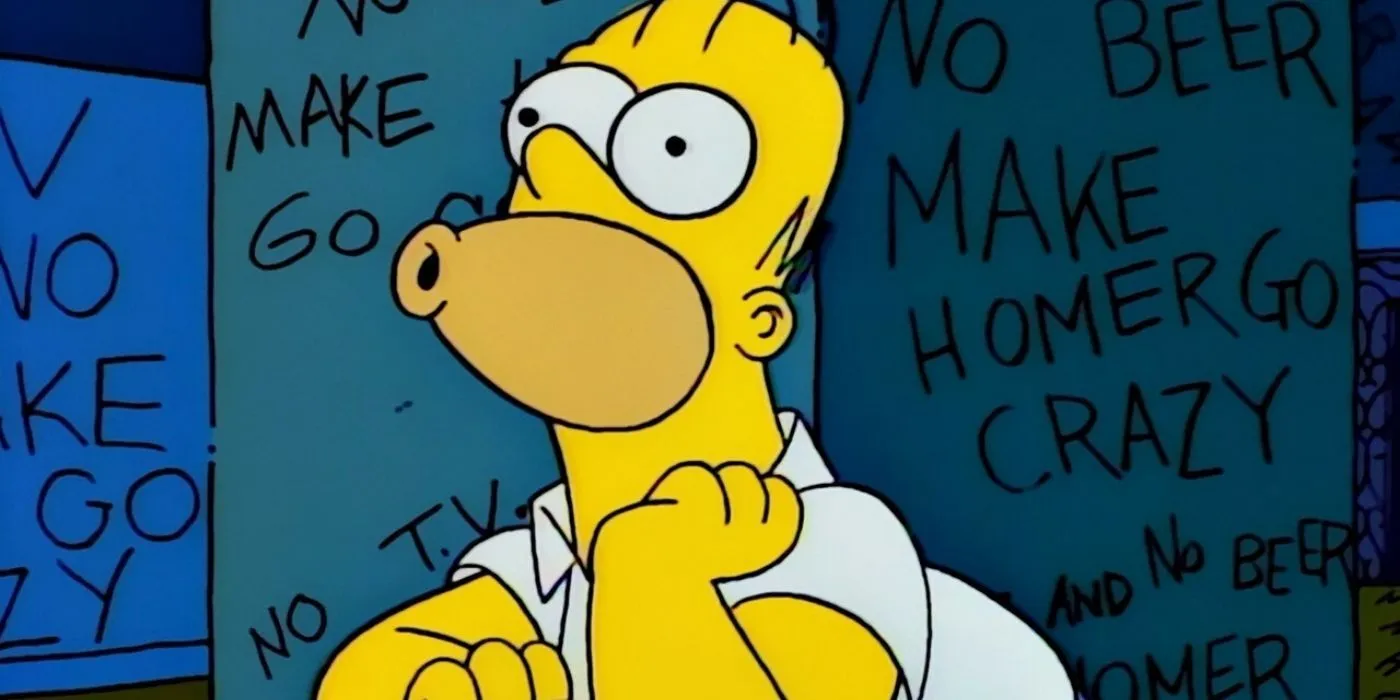
“Treehouse of Horror V”is hailed as a standout special, particularly for its homage to The Shining. In the parody titled “The Shinning,”the show expertly captures the film’s well-known scenes with a humorous twist, featuring Homer as the iconic Jack Torrance. The segment serves up many nods, including the blood-filled elevator and the infamous ‘Here’s Johnny!’ moment.
Groundskeeper Willie embodies Dick Hallorann, a character who meets an untimely demise upon his return to the Overlook Hotel, something that gets humorously spoiled in this adaptation. The dark irony of Hallorann’s swift death after his long journey is particularly funny, showcasing how The Simpsons balances humor and horror effectively, something not all parodies master.
1
Citizen Kane (1941)
Season 5, Episode 4, “Rosebud”
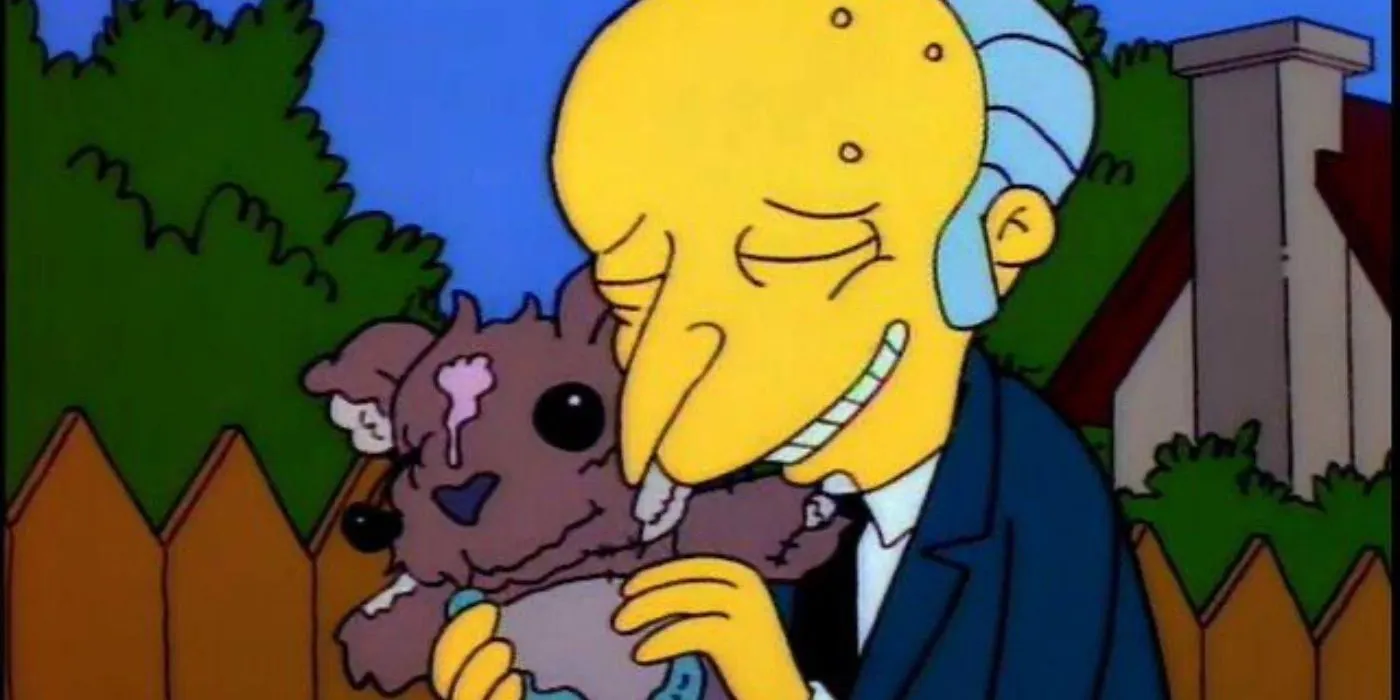
As the title “Rosebud”suggests, this episode serves as a clever parody of Citizen Kane, featuring Mr. Burns in the role akin to Orson Welles’ protagonist. The plot centers around the mystery of Kane’s final words “Rosebud,” which eventually unveils a significant piece of his past—a beloved childhood sled, symbolizing lost innocence.
Right from the start, The Simpsons reveals its cards, intertwining the narrative with Mr. Burns’ longing for his childhood bear, Bobo. This episode stands as one of the most frequent homages to Citizen Kane, reflecting its deep influence on popular culture, while also recurrently referencing its poignant themes through various characters and episodes.




Leave a Reply